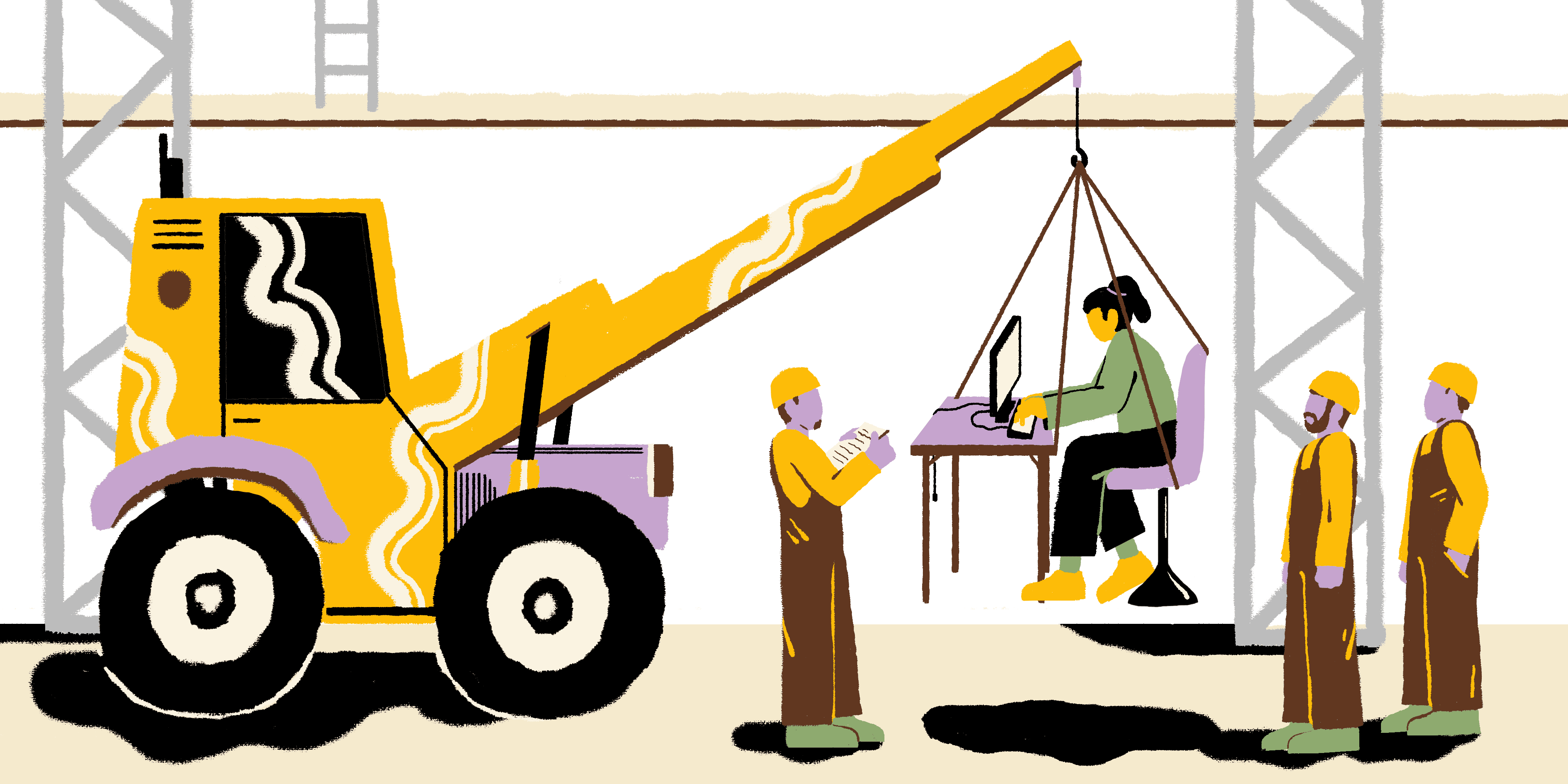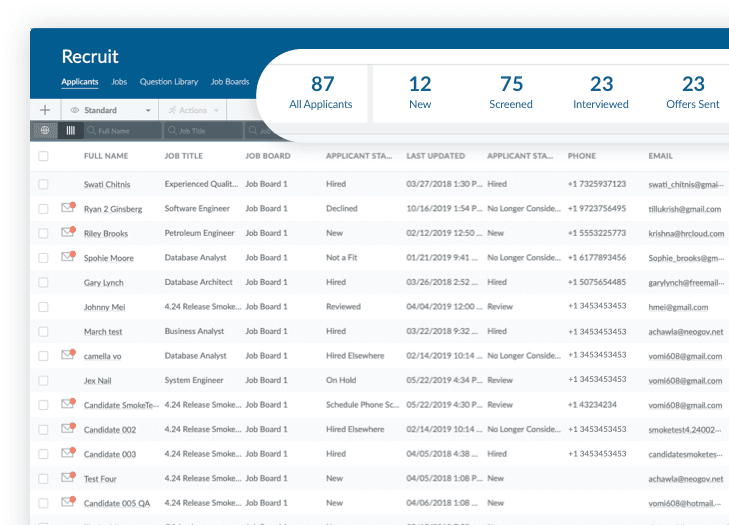The Top 4 Problems Facing HR in the Construction Industry



 Cut onboarding time
by 60%—here's the
Ultimate Checklist
that helped do it.
Cut onboarding time
by 60%—here's the
Ultimate Checklist
that helped do it.

The construction industry is booming and all signs point to its continued growth. This is great news for companies operating in this sector and for the economy in general, as construction professionals count for a significant portion of the American workforce.
But this field still has its struggles — especially for those working in the HR departments. In this blog, we’ll explore the top four issues facing HR professionals in the construction industry and a few tips to combat them.
Four HR Related Problems in the Construction Industry
Do you work in human resources for a construction company? Then you're likely already aware of these top four issues. But do you know how to solve them? That's what we'll discuss in this section.
1. Finding Qualified Workers
The search for top talent is a problem just about every company faces. But for organizations in the construction industry, the issue seems to be amplified.
There are numerous reasons for this such as the common perception that construction jobs are low paying, dangerous, and strenuous; and the fact that, for many construction jobs, a qualified candidate must be in possession of a unique combination of skills and/or certifications.
In order to combat this, it's essential that HR professionals in the construction industry maintain a healthy pipeline of potential employees at all times — even when their company isn't hiring.
By using a full-featured applicant tracking system that integrates with your company website, favorite job boards, and social media sites; you'll put your business in the best position to attract quality workers.
Post Jobs, Evaluate Candidates,
and Hire the Best with Our
Applicant Tracking System
Learn More about Recruit
But finding top talent is only half the battle. You might also have to compete against a multitude of other construction companies in your area to win their services. To give your organization an edge, make sure you're able to offer enticing salaries and benefits packages to each worker you hope to hire.
2. Maintaining Worker Safety
In the construction business, worker safety is a constant concern. If your company neglects to take important safety precautions, it could be at risk of high medical bills, rising workers' compensation fees, and even lawsuits from the injured party.
While it's impossible to completely remove the risk of harm from a job site, there are things that HR departments can do to reduce the likelihood of employees sustaining significant injuries while working.
-
First, always emphasize the importance of safety and make sure that the supervisor or foreman in charge understands the value your company places on a safe work environment.
-
Second, make sure that any employees operating machinery or dealing with potentially hazardous materials have been properly trained.
-
Finally, ensure that solid safety protocols not only exist but are understood by your workers and can be enacted should the need arise. Supervisors should know exactly what to do in the event of a workplace injury.
3. Lowering Workers' Compensation Costs
Related to worker safety, rising workers' compensation costs can greatly restrict a construction company's ability to operate efficiently and grow.
By implementing safety standards and procedures, you'll reduce the risk of injury, thereby protecting your company from large workers' comp fees. But there are other steps you can take as well.
For example, you could consider implementing a return-to-work program at your company that proactively helps injured employees return to their jobs — at least at a limited capacity — in the shortest amount of time possible. This could greatly lower the amount your company pays in workers' comp fees.
4. Reducing Employee Turnover
Since finding and hiring talented employees is one of the main problems HR professionals deal with in the construction industry, doesn't it make sense to do whatever it takes (within reason, of course) to keep the skilled workers you've already hired? Of course it does!
To reduce employee turnover, make sure you're able to offer your employees competitive wages and benefits packages, safe and appealing working environments, and ongoing training. This will help them appreciate working for your company and increase employee engagement with your organization.
In Conclusion
There’s a lot to be excited about in the construction industry. But there are also specific issues that HR teams must be aware of and address.
As an HR professional, if you can discover ways to find more qualified workers for your company, maintain worker safety while lowering worker compensation costs, and reduce employee turnover, you’ll become incredibly valuable to your organization.
Author Bio:
This article is written by a marketing team member at HR Cloud. HR Cloud is a leading provider of proven HR solutions, including recruiting, onboarding, employee communications & engagement, and rewards & recognition. Our user-friendly software increases employee productivity, delivers time and cost savings, and minimizes compliance risk.
Keep Reading
Specialized Onboarding Software for Healthcare to Reduce Admin Work and Scale Hiring Fast
Imagine this: a women’s health clinic hires two new nurses, only to lose both within
A Closer Look at HR Cloud-ADP Integrations
ADP is the gold standard for payroll and core HR management. But if you’ve ever tried to
Retention Reset: How to Keep Your Best Talent in 2025
More employees are walking away from their jobs in 2025 not just for better pay, but for
Like What You Hear?
We'd love to chat with you more about how HR Cloud® can support your business's HR needs. Book Your Free Demo

Build a Culture of Recognition. Boost Engagement. Guaranteed.
Workmates empowers employees to stay informed, connected, and appreciated—whether they’re on the front line, in the office, or remote. Recognition drives 12x higher engagement.Trusted by industry leaders in every sector




Cut Onboarding Costs by 60%.
Take the confusion and follow-ups out of onboarding with automated workflows, digital forms, and structured portals—so new hires ramp faster 3X quicker.Trusted by industry leaders in every sector




